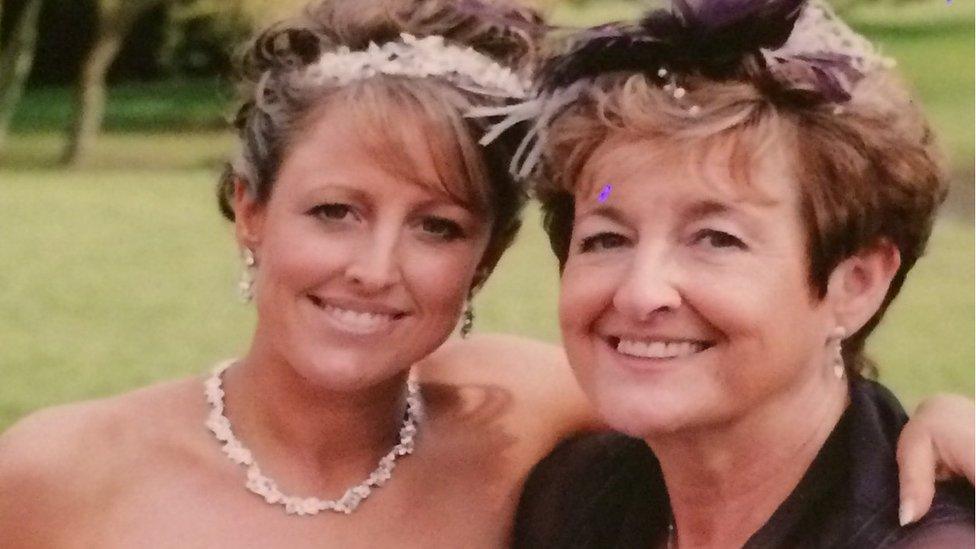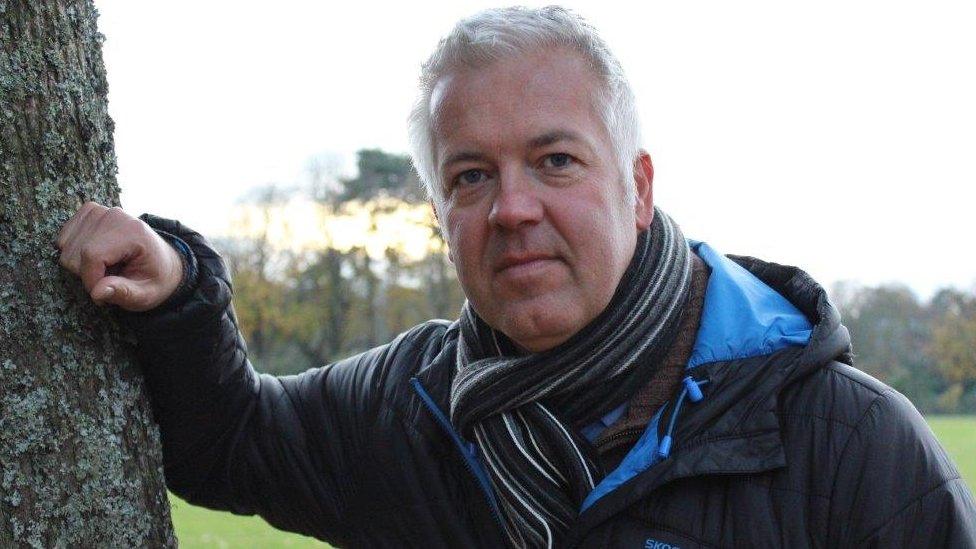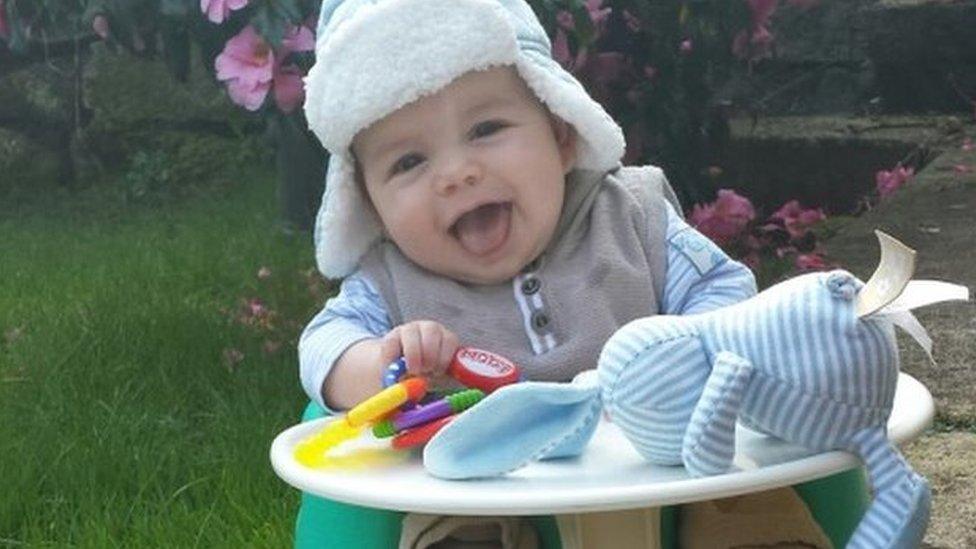Sepsis victim's daughter: Do more against 'massive killer'
- Published

A woman whose mother died from sepsis after going into hospital for a routine operation has said more needs to be done to educate people about it.
Karen John, 60, from Merthyr Tydfil, died in December 2014 after going into the town's Prince Charles Hospital.
Her daughter, Taryn Rees, 39, said it was "disgusting" research claimed only 12% of people were initially screened and treated in line with best practice.
Health Secretary Vaughan Gething said consistency would help save lives.
Mrs John was admitted to hospital in November 2014 for a hernia operation and to treat a stomach problem.
Mrs Rees said she was groggy for several days after waking up from the anaesthetic and was treated with antibiotics.
"My mother was very confused and scared - she didn't know anybody. I was told it was nothing to worry about," she added.
Mrs Rees said her mother was rushed into intensive care on 12 December after having breathing problems, but died two days later.
"I was told my mother had sepsis and it was two days of hell, she didn't respond to anything," said Mrs Rees.
"It's frustrating - at that time I knew nothing about sepsis. Had I known what I know now, my mother had every single symptom on the sepsis chart., external"

Taryn Rees and Karen John
Mrs Rees said sepsis was mentioned as a possible cause of her mother's symptoms on 8 December, but it was "too late" by the time she was in intensive care.
"I'd like to see more awareness - it's a massive killer and we have all the advertisements on TV for stroke, cancer, meningitis. I think a campaign should be going on TV and in schools - there's nothing being done about it."
The mother-of-five said it was "absolutely disgusting" there was the variation in how clinical teams responded to sepsis.
"I'd never wish for anybody to go through what my family went through," she added.
A Cwm Taf University Health Board spokeswoman said: "There was a review of the care and treatment provided to Mrs John and where improvements were required, these were made to try and minimise the risk of this happening again.
"Please be assured that the treatment of sepsis is a high priority for the university health board and we work consistently to improve our rates of sepsis and the outcomes for patients in our care.
"We would like to once again convey our deepest sympathy and sincere apologies to Mrs John's family."
Mr Gething said how consistently the health improvement programme was followed was key to its success.
"If we level out that variation, we will end up saving more lives. So I wouldn't pretend to you or anyone else that we are perfect where we are," he added.
- Published28 November 2016

- Published28 November 2016

- Published26 January 2016

- Published13 July 2016

- Published28 November 2016
